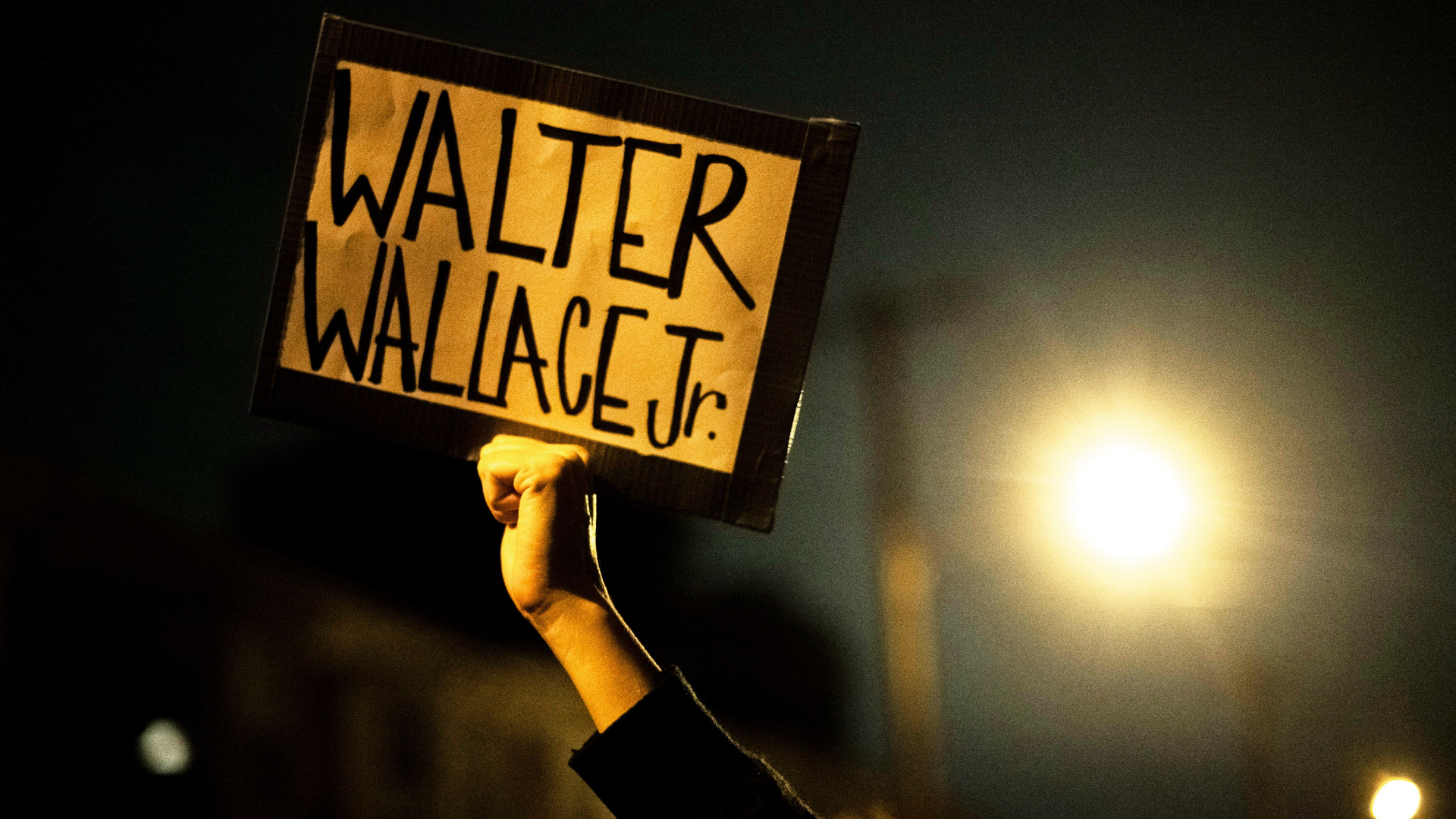Walter Wallace Jr. Was Killed by Police While in Crisis. Here's How You Can Help Demand Justice
Police gunned Wallace down in front of his mother.


- Walter Wallace Jr. was shot dead by police on October 26 while he was experiencing a mental health crisis.
- Wallace's family called for an ambulance—but police arrived first.
- A father of nine, Wallace was expecting to welcome a baby this week with his wife, Dominique Wallace.
- Donate to Wallace's family, sign petitions demanding justice, and donate to bail funds for protestors below.
Walter Wallace Jr.'s brother called for an ambulance on Monday, October 26, as Wallace, who had bipolar disorder, was experiencing a mental health crisis. But the police arrived first—and shot Wallace multiple times in the street, killing him in front of his mother. A father of nine, Wallace was expecting to welcome a baby this week with his wife, Dominique Wallace.
As the Guardian reports, Wallace was holding a knife and did not respond to police orders to drop it before he was shot. But the police knew Wallace was in crisis, as they'd been to the family house three times that day. His mother, Catherine Wallace, said the police "stood there and laughed at us" during one of their visits.
JaHiem Simpson, an onlooker who videoed the shooting, told CNN that the police officers, who have not been named, drew their weapons as soon as they saw Wallace's knife. "All I'm thinking in my head is, 'Where the Tasers at?'" Simpson said.
Shaka Johnson, attorney for the Wallace family, said at a news conference Tuesday that Philadelphia police officers were not equipped to deal with people experiencing mental health crises. "When you come to a scene where somebody is in a mental crisis, and the only tool you have to deal with it is a gun ... where are the proper tools for the job?" Johnson said, the Associated Press reports.
Police Commissioner Danielle Outlaw acknowledged that the Philadelphia Police Department did not have a mental health unit, while police calls were not consistently coordinated with specialists. "We don’t have a behavioral health unit, which is sorely needed," Outlaw said, according to AP. "There’s clearly a disconnect on our end in terms of knowing what’s out there." She pledged to release 911 tapes and body camera footage once it had been shared with Wallace's family.
Reggie Shuford, executive director of the ACLU of Pennsylvania, condemned the "brazenly violent and abusive behavior" of the Philadelphia police in a statement Monday, adding that the department had "a long history of brutality against city residents, particularly against Black Philadelphians."
Get exclusive access to fashion and beauty trends, hot-off-the-press celebrity news, and more.
"In Philadelphia and around the country, it is time to divest in police and invest in community programs, including the kind of mental health services that allow intervention that may have prevented Mr. Wallace’s killing," Shuford continued. "In 25-50 percent of cases in which a person is killed by a police officer, the victim was in the midst of a mental health crisis. There is a better way to handle these incidents. But instead, yet again, we see police officers fail the people they are sworn to protect."
Wallace's uncle, Rodney Everett, told CNN that his sister, Wallace's mother, is "balled up in pain" after the death of her son, who he described as "a good-natured person." Everett said, "I'm just disappointed that his life ended like it has. I don't think it's right. I don't think it's right at all. I don't think they did any justice."
Walter Wallace Sr., Wallace's father, said Tuesday that he's been unable to rest since his son was "butchered" by police, AP reports. "It’s in my mind. I can’t even sleep at night," he said. "I can’t even close my eyes."
How can I help demand justice for Walter Wallace Jr.?
Sign the petition calling for justice for Walter Wallace Jr. here.
Donate to Walter Wallace Jr.'s family here.
Sign the Black Lives Matter petition to #DefundThePolice here.
Donate to the Philadelphia Community Bail Fund here.
Donate to the Philadelphia Bail Fund here.
Donate to Black Lives Matter here.
Donate to the Movement for Black Lives, a coalition of Black organizations across the U.S., here.

Emily Dixon is a British journalist who’s contributed to CNN, Teen Vogue, Time, Glamour, The Guardian, Wonderland, The Big Roundtable, Bust, and more, on everything from mental health to fashion to political activism to feminist zine collectives. She’s also a committed Beyoncé, Kacey Musgraves, and Tracee Ellis Ross fan, an enthusiastic but terrible ballet dancer, and a proud Geordie lass.